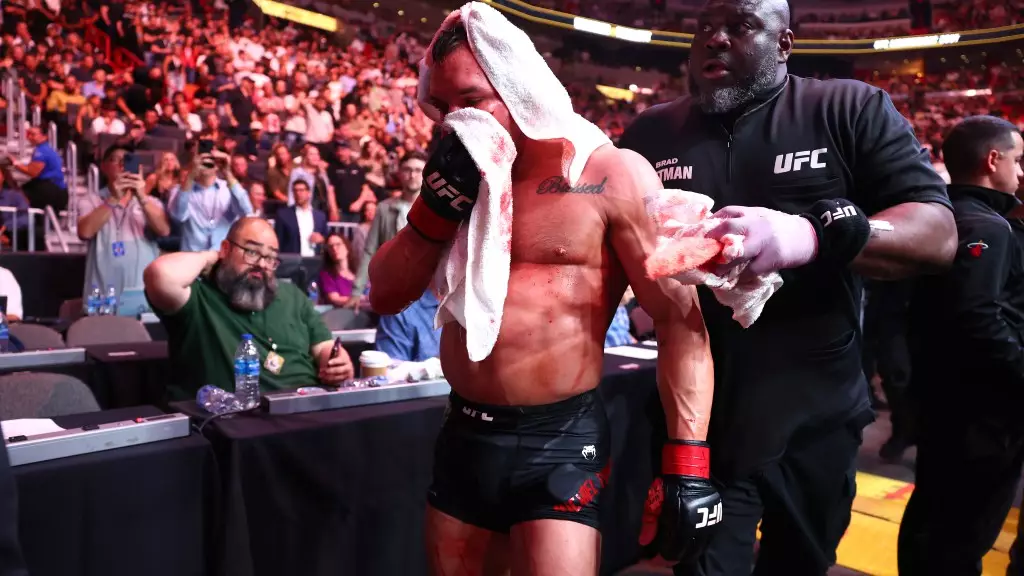In the cutthroat world of mixed martial arts, few experiences are as disheartening as a losing streak. Henry Cejudo, a seasoned warrior and former champion, fully understands this struggle. Just like his one-time colleague Michael Chandler, Cejudo is grappling with the disillusionment of consecutive defeats. Chandler’s latest setback against Paddy Pimblett at UFC 314 marked his third loss in a row, deepening an emotional and competitive crisis that many athletes face but few openly discuss. The anguish of repeated failure can weigh heavily on an athlete’s psyche, as Cejudo himself articulated, suggesting that Chandler may need to reassess his future in the sport.
Potential Unmet: The Story of Michael Chandler
Chandler’s career is a testament to the brutal reality of professional fighting. Despite showcasing immense talent and ferocity in the cage, he has often fallen short against the elite fighters of the UFC. Overcoming tough opponents like Charles Oliveira, Justin Gaethje, and Dustin Poirier has proven to be more than just physical; it’s a battle against his own approach to the fight game. Cejudo’s insight, that Chandler’s crowd-pleasing style may have hindered his ascent to greatness, resonates strongly. In an age where fighters like Khabib Nurmagomedov have carved out a legacy based on dominant strategy rather than entertainment value, one must wonder if the thrill-seeking approach might be outdated in the ultra-competitive UFC environment.
The Conundrum of Retirement
As athletes reach the peak of their performance, the retirement question looms larger than life. Cejudo’s circumstances amplify this conundrum even more. With three losses piling up and the pressure mounting, Cejudo believes that it might be time for both him and Chandler to contemplate their futures in the sport. The fact that he feels the need to prompt Chandler to consider stepping away speaks to a deeper concern for fighter well-being that transcends mere statistics. Physical toll and mental resilience are critical factors that demand introspection, and both fighters now find themselves at a crossroads.
Legacy vs. Longevity: A Fighter’s Dilemma
The conflict between legacy and longevity is perhaps the most poignant aspect of an athlete’s journey. Chandler, having achieved the status of a Bellator champion prior to joining the UFC, undoubtedly has the pedigree, yet he faces the terrifying prospect of being remembered for what he could have been rather than what he achieved. Cejudo’s commentary strikes at the heart of this dilemma: Will Chandler prioritize the thrill of performance over the acclaim of victory? Athletes are often branded by their knockout reels and highlight performances, yet for every sensational moment, there’s an avalanche of invisible toil that goes unnoticed.
As Chandler contemplates his next move, both personally and professionally, the lessons from Cejudo’s experience provide a critical lens through which to assess not just fighting, but life itself. An important realization remains: in the world of high-stakes competition, sometimes knowing when to walk away is the bravest step one can take.

